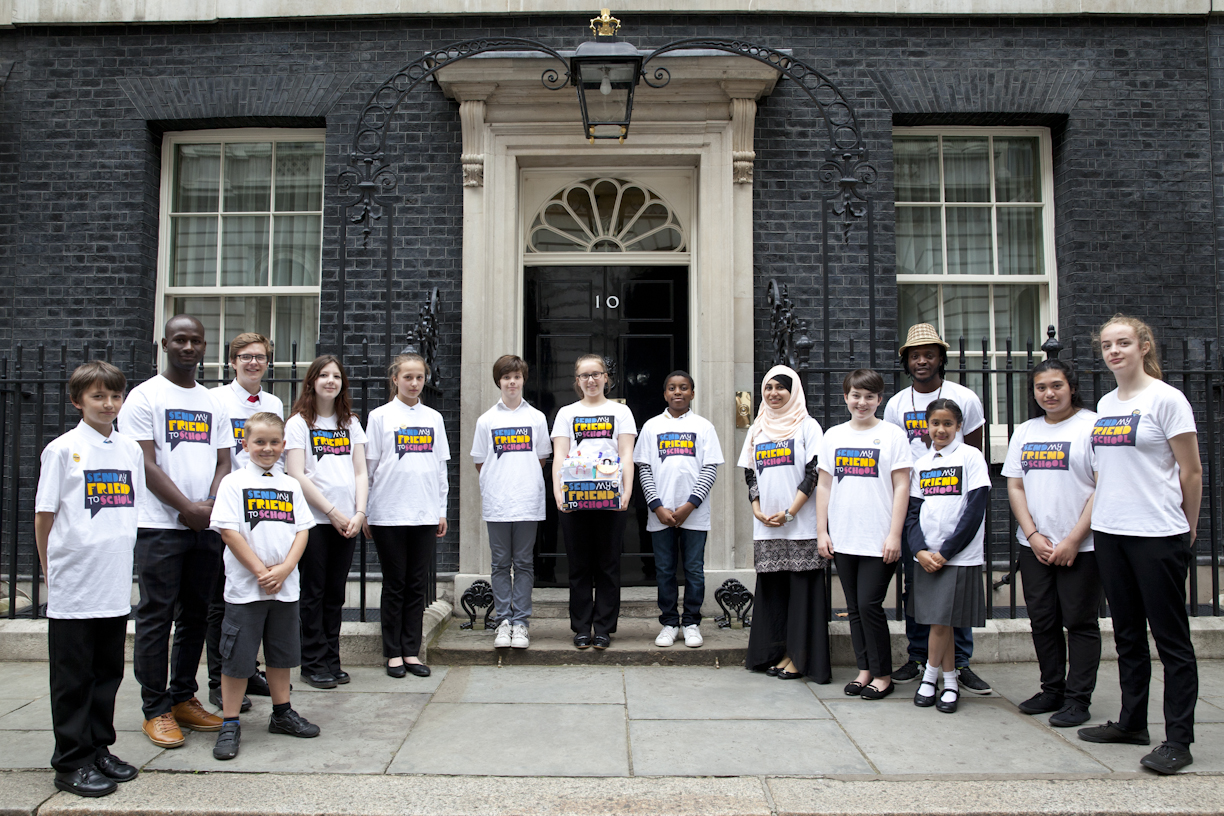GENEVA – 16.2.2023
Earlier today, the UK Government pledged £80 million to Education Cannot Wait (ECW) for its 2023-26 strategic period. Just US$826 million of the US$1.5 billion target has been raised at the High-Level Financing Conference. Celia Dignan, Chair (interim) of the Send My Friend to School Coalition said:
“This is an underwhelming and disappointing UK pledge. It is less than half of the £170 million that cross-party parliamentarians, British schoolchildren, youth leaders and civil society called for, and is £10 million less than what the UK contributed to ECW in 2019.
This is despite the number of children in emergencies who are in need of urgent educational support rising by 196% since 2016, to 222 million children around the world today. The scale of the challenge has increased yet the UK Government has opted to step back rather than lead.”
We recognise that the COVID-19 pandemic and the war in Ukraine have put immense pressure on the global economy, but these effects are being felt even more acutely in many crisis-affected countries. It is for this very reason it is so critical that the international community steps up to ensure children in emergencies are not left behind.
£170 million is a reasonable expectation for the UK Government to invest in ECW. It equates to just 13% of the overall fundraising target when historically the UK has demonstrated its commitment to education in emergencies by contributing around 20% of ECW’s financing.
As always when it comes to development and humanitarian financing, behind the facts and figures is a human cost. A £170 million UK pledge would have provided 1.6 million children and adolescents with access to education following an emergency or the escalation of a crisis, 60% of whom would be girls. This means that if the UK does not increase its investment in ECW above £80 million, we can expect that 690,000 fewer children 1 will be reached as a result of the UK pledge.
As we have seen with its recent pledges to the Global Fund for Aids, TB and Malaria and Global Partnership for Education, the UK Government will frame this as a success given economic pressures and preservation of the UK’s status as the largest donor on the day. However, this is a sad indictment on the international community, reflecting a collective failure to do more rather than the UK demonstrating leadership and driving up ambition.
Other countries have shown what genuine leadership on education in emergencies can look like. For example, Germany, a comparable economy to the UK, has stepped up and pledged more than ever before, overtaking the UK as the largest overall donor to ECW.
It is not too late for the UK and other bilateral donors to change track. Clearly, with just over half of the targeted US$1.5 billion raised for ECW, today’s High-Level Financing Conference should be a starting gun rather than an end point.
To reach its fundraising target, ECW now requires countries like the UK to step up and respond by investing more in the organisation as new crises emerge over the coming years.
An immediate example of this would be additional UK support for ECW’s First Emergency Response for Syria, which the organisation has announced this week in response to the region’s devastating recent earthquake.
The Send My Friend to School coalition implores the UK Government to plan and prepare for crises like this by exploring all opportunities to increase the amount it invests in ECW and reach the £170 million we have been campaigning for. This will be instrumental to ensuring ECW is fully-funded and equipped to deliver education to all of the children it has committed to reaching. The UK can also play an influential role in encouraging other countries to follow its lead in increasing pledges to ECW, or invest for the first time.
There are 222 million children awaiting the international community’s next move. Now that the High-Level Financing Conference has come and gone, education in emergencies must not be allowed to slip off the UK Government’s radar. Those children are waiting and watching.


 Send My Friend to School brings together thousands of children across the UK to speak up for the right to education.
Send My Friend to School brings together thousands of children across the UK to speak up for the right to education.